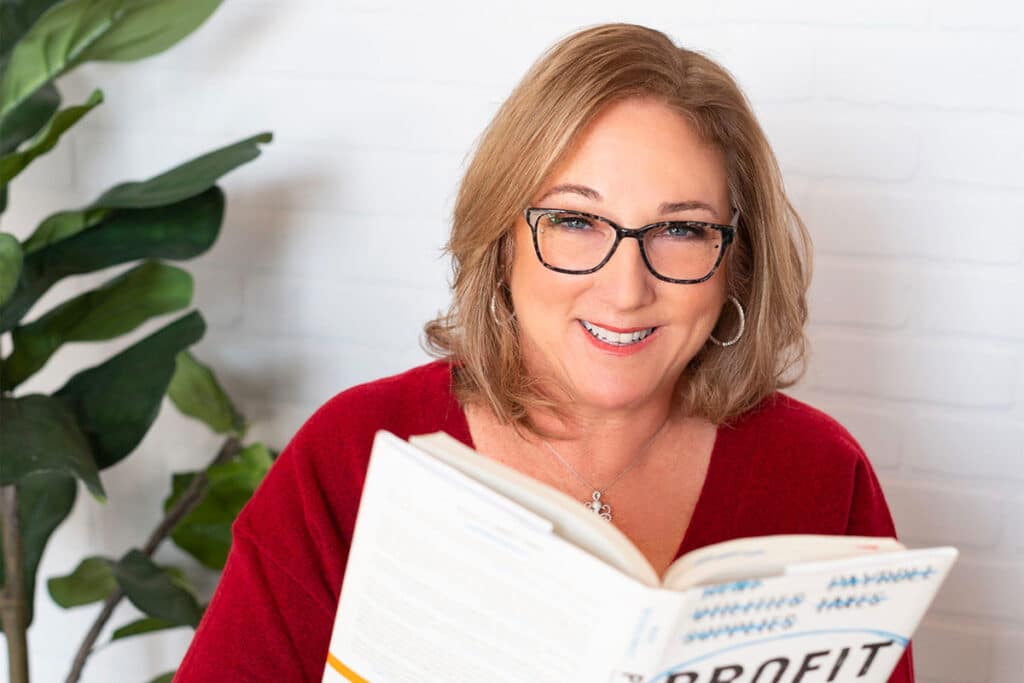Till death us do part. Wedding vows promise a lifetime of love and commitment. Fortunately many marriages do endure and thrive, but the complications of modern life rudely intrude on other unions, tearing at their fabric until they can no longer withstand the strain. With American marriages failing at a rate of about 50 percent for first marriages and at even higher rates for subsequent unions, millions are dealing with the pain, frustration and very concrete problems that accompany a marriage’s dissolution.
Much of the emotional firestorm of a divorce revolves around money. Because of its power in relationships, money becomes a major battleground on which some of the bitterest emotional conflicts in divorce are fought. In some cases, money may even be used as a tool for revenge — to punish a spouse or play out emotional needs.
Alimony? Child support? Custody of children? Who gets the house, the cars, the investments, the retirement account, the credit cards, the debts? Whatever the emotional tenor of the relationship, the end of a marriage almost always means costs and complications for both partners.
Take care of yourself first
If you decide to dismantle your marriage, be ready for an onslaught of powerful emotions — pain, anger, sadness, regret — even while you are trying to make important life and financial decisions. Dividing your life in two, taking care of the bills, planning for your future and making sure the children are cared for is difficult enough, but you must do it all while an emotional storm swirls around you.
Marriage and financial counselors observe that the better you can manage your emotions during divorce, the better your life and financial decisions will be. But that isn’t easy. Divorce is second only to the death of a spouse in the amount of stress it produces. If you add some likely byproducts of divorce — tightened finances, a move to another location, children’s anger, new responsibilities — divorce may actually score as life’s most stressful event.
But beware of your reactions to the pressures that can escalate negative emotions or sabotage your life after divorce: You decide to get even with your spouse; you push to get the divorce over with as quickly as possible just to get out of the marriage; you pressure your spouse (or allow yourself to be pressured) to reconcile even if it’s dangerous or unhealthy to do so; or you try to block out reality with obsessive work, sex, alcohol or drugs. These responses can keep you from thinking clearly about what you must do and cause you to make costly mistakes.
So how do you survive the enormous emotional maelstrom of divorce? Marriage counselors and physicians both recommend you reduce as much stress as you can. Take time to nurture yourself physically, mentally, spiritually and emotionally. Eat regular, nutritious meals; find time to exercise. Get as much rest as possible. Spend some time alone in meditation. Go to a movie, take a walk or spend a day at an amusement park with your children. Do whatever is necessary to release the pressures that build up as you work through the details of divorce.
Spend more time with friends who are positive and supportive and less time with those who are likely to criticize or pressure you. Talking to a professional family counselor or therapist is also a positive move and usually well worth the money if you can afford it. The impartiality you gain from counseling can give you the strength you need to face tough decisions, a hostile spouse or confused children.
Most important of all, stay focused on the financial and legal realities you must handle.Your spouse may push your emotional buttons over some resentment or financial sore spot — spending sprees, unpaid bills, meddling in-laws, for example. Or you may sink into despair as you watch your spouse happily move on to another relationship, showing little regret for the shattered marriage left behind. Whatever you may feel, however, remember that acting out of anger or frustration, or simply giving up, impairs your ability to make good decisions and can increase the monetary and emotional costs of your divorce. Your goal is to protect your own financial interests while working to create a fair outcome for everyone; to do any less will gravely impair your chances for recovering from your divorce and beginning a new, hope-filled life.
Try to avoid making any life-altering decisions on days when you are emotionally agitated or fatigued. Don’t let anyone pressure you into “just getting the divorce over with.” You have no obligation to rush through decisions that will affect the rest of your life; you have a right to set the pace of your divorce. Don’t trade away long-term financial options for short-term emotional relief: “Just give him the house; I want this over with.” Or “I’ll take all the bills just to get her out of my life.” Before you agree to anything, make sure that you have mental and emotional clarity, apply long-term thinking to any decision or proposal and understand the life-long effects of any
Get professional help
Questions of property, custody and support — all part and parcel of a divorce — are generally complicated. You will need some help to make sense of the sometimes arcane laws that govern property division, issues surrounding the custody and support of children, and other important matters. And you are likely to need a professional’s guidance to structure a settlement that is fair and meets legal requirements.
So, whom should you turn to for help? For most people, it’s a skilled, dedicated attorney with experience handling family law and divorce cases. (Your spouse will need a separate attorney.) If you suspect your divorce could be contentious or drawn out, you’ll want an attorney with courtroom experience as well. Get referrals from friends and family members who have divorced. Your local bar association may also offer recommendations. And, by all means, visit your local library and find a copy of the Martindale-Hubbell directory, a resource that lists and evaluates attorneys city-by-city, or you can go online atwww.lawyers.com to get this information. Also useful: Call the American Academy of Matrimonial Lawyers at (312) 263-6477, or log on to its Web site at www.aaml.org.
You and your spouse can trim potentially hefty legal bills by avoiding hostility. The more time each spouse’s attorney must spend hammering out an agreement, the higher each lawyer’s bill will be. If no agreement is reached, you face an expensive court battle. Legal advisers agree that couples should try to settle as many issues between themselves as possible before they bring their attorneys into the situation.
Some couples are candidates for options that keep costs and stress to a minimum whether or not attorneys are involved in the divorce settlement. One alternative puts divorcing couples together with professional divorce mediators to avoid the typical courtroom brouhaha of divorce. In this process, a divorcing couple, with coaching from a neutral, impartial third party, works out a settlement cooperatively, reducing costs and trauma.
Many couples point to mediation’s pluses — a focus on the future, avoidance of pinning blame, a way to retain mutual respect, less stress and reduced costs — as reasons for pursuing it. But the process is not without its drawbacks and its detractors. Divorce attorneys are sometimes reticent to suggest it to clients, citing a lack of regulation to ensure mediators’ skills, although many are professionals — attorneys, psychologists, social workers, marriage counselors and financial experts. Attorneys also note that in some cases mediated agreements ignore important elements such as health insurance or reflect ignorance of complex tax consequences, eventually costing clients more than settlements worked out in an adversarial atmosphere.
Increasingly, however, overtaxed family court dockets are providing the impetus for public-sponsored mediation, and couples who want a simple parting find that a mediator can usually deliver on their wishes.
Mediation can work for you if you and your spouse are motivated to work together in a rational, collaborative, nonthreatening atmosphere; if you are both able to communicate easily with one another; if your property and custody issues are straightforward and uncomplicated; and if your estate is reasonably small. If you think that mediation might work for you, contact the Academy of Family Mediators atwww.mediators.org to locate a mediator convenient to you.
Make a plan for your future
After all the bargaining, negotiating and planning, you may have no idea who actually won or lost in your divorce. But the day after a divorce dawns, and it is time to start a new life. Where do you go from here? Where do you live? How do you live? And how about money? By the time the last divorce papers are signed, you should begin to approach your life as a single person or a single parent with the same attention to detail you gave the divorce.
Successfully moving beyond divorce requires goal setting and planning, especially in the area of finances. If the task seems daunting, a money management course at a local college or university may be just what you need to build confidence and provide guidance. Books written especially for the newly divorced person can also be helpful. Check your local library or bookstore.
Counselors advise you to keep your life as simple as possible and work on regaining your emotional balance. You will need time (some financial advisers say as much as a year) to adjust to your new life before you should consider making major life decisions, and that includes how to invest money. If you have received a large financial settlement, take a conservative approach and resist others’ pressure or well-meaning advice. Instead, put money in a safe parking place — an account with no or low risk and easy access, and leave it there until you are better equipped to make clear-headed decisions. When you feel more confident about future goals, a trusted professional financial planner can advise you about investment options.
At the same time, resist the impulse to spend your way into a better frame of mind. A divorce can leave you feeling emotionally spent and financially parched. Rewarding yourself with a post-divorce extravagance or two beyond your budget may seem like a harmless indulgence. But you’ll regret the bills you must face later, say financial experts, especially if you can’t pay them. Better to be cautious about expenses, especially right after your divorce and until you gain a sense of what you can realistically afford as a single person. Even if you received a large settlement, don’t give in to the temptation to splurge on some luxury (“I deserve this”). Instead reserve all or most for some future objective — buying a house, educating the kids or going back to school yourself.
Set new goals for yourself and make a budget. Now is the time to redesign the life you want for yourself. You may be a life-long planner and goal setter; if so, you’re headed in the right direction. But it is unlikely that your post-divorce life will resemble what you thought it would be before the divorce. You’ll need to adjust to new financial, emotional and physical realities. If your finances are drastically altered by your divorce, you may need a major retooling of your life goals. Do you now need more education? Should you seek a new job? Can you afford all the pleasures you once took for granted, such as costly vacations? Once you identify new career and financial goals, a budget should fall into place. Make sure your budget is practical, workable and includes all necessary living expenses. Allow for unexpected expenses that may surprise you now that you’re on your own. Cut expenses wherever possible. Take a hard look at every budget item to determine where you can whittle down expenses and follow through with actions that keep more dollars in your pocket.
For additional security, set up an emergency fund to cover your living expenses for three to six months. This fund can soften the blow of an unexpected illness, job loss or other circumstance that would otherwise blow a hole in your finances. Put these funds in a safe, liquid account such as a money market fund or deposit savings account. Also line up contingencies — nonfinancial resources you can count on in an emergency. Could a family member offer you a place to live, if necessary? Who would be willing to pitch in to care for your children in a crisis?
Tie Up The Loose Ends
Unfortunately, your divorce is far from complete on the day it is final. You must attend to the details that come in the days and months after you’ve signed final papers. If you forget them, ignore them or expect them to take care of themselves, you could pay dearly for the oversight. For starters, go through the settlement with your attorney or financial adviser a few days after you sign final papers; make lists of any pending items you must complete as well as those your ex-spouse, attorney and others are responsible for. Then, follow through on your own “to do” list. Make copies of all divorce documents, including the final judgment and settlement agreement. Place the original in a secure place such as a safe deposit box, and keep a copy in a file you make for divorce-related documents and papers. In this file, keep records of all payments you make or receive for alimony, child support and property transactions. Make copies of all checks you write or receive for these items, and maintain a log of dates when you make, receive and expect payments. These records can be used if you go to court later to ask for an increase or decrease in payments or to support a claim for nonpayment.
Author: Judy Alexander




